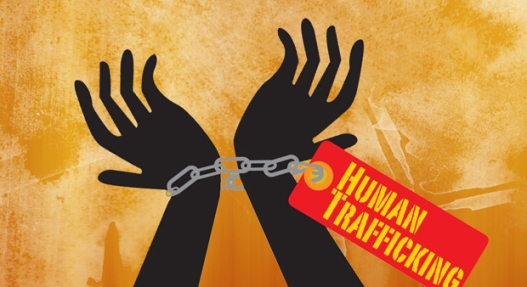Trafficking in persons is a crime that uses the victims to be exploited in pornography, prostitution, occupationally or abused in other ways. We can all be victims, but are more vulnerable women, girls, children and adolescents, as well as migrants.
Recommendations to Avoid Being Victims of Human Trafficking
- In your social networking profiles never post personal information, such as your full name, address, telephone number, or other people that you know or share photos of friends and family, or any information about you publicly.
- Limited access to your information only to the people closest to you, do not use networks to meet people because it can be very dangerous.
- Distrusts of ads or people offering very attractive jobs, especially if the work is outside of the city where you live, even if they ask you to take photos in a swimsuit or scantily clad.
- Never go alone or only to job interviews, ask a family member or friend to go with you.
- Stay away from people who addressed you on the street to meet you.
- If you receive messages that seek to seduce you, excite you, threaten you, blackmail you, intimidate you, or with the promise to give you things that you like, talk about it with someone of your trust, preferably with your parents or teachers or professors.
- If the safety politics of the place allows it to you, reports all kinds of abuse when there is a threat or someone express comments that inconvenienced you, not only will help you, but will protect other people who surf.
- Never talk to strangers on the Internet, much less to activate your webcam with them.
- Flirt online with strangers can have serious consequences, since some lie and can pose as people of your age, you can never really know with whom you are dealing.
- Never share pictures with little clothing or in intimate situations with anyone.
- Preserves messages, emails and all improper information, (as phrases or offensive images) will be used where it is necessary to report to the authorities.
- Do not allow access or accept friend invitations from strangers, although it is presented as the school, of a club or sports equipment to which you belong or friends of relatives.
- Never share information that can be used to identify you or reach you outside of the Internet, for example, the places you frequent, day and time you do, the times when you are at home or times when you stay alone.
- Create strong passwords: it’s must have at least eight characters; contain uppercase and lowercase letters, symbols and punctuation marks; create it with base in a phrase that you can remember easily, and change it frequently.
- If when you’re online you’re feeling threatened or threatened by any person or bothers something to show you on the screen, it is necessary to tell a person with whom you have confidence to denounce this to the authorities.
Read Also: What to Do if Someone You Love Might be a Victim of Elder Abuse
How to Know if you are being Targeted for Human Trafficking
Recognizing potential signs of being targeted for human trafficking is crucial for personal safety. Here are some indicators to be aware of:
- Isolation and Control: Traffickers often attempt to isolate their victims from friends, family, and support networks. They may exert excessive control over their movements, communication, and activities.
- Sudden Change in Behavior: Watch for sudden and unexplained changes in behavior, demeanor, or appearance. This could include signs of physical abuse, withdrawal, or fear.
- Restricted Movement: Victims of trafficking may have limited freedom of movement. They may be closely monitored and escorted by someone else at all times.
- Exploitative Work Conditions: Victims may be subjected to harsh and exploitative working conditions, with little or no pay. They may work excessively long hours without adequate breaks.
- Signs of Physical Abuse: Look for evidence of physical abuse, such as bruises, injuries, or signs of neglect. Victims may be reluctant to seek medical attention.
- Loss of Identification Documents: Traffickers often confiscate victims’ identification documents, making it difficult for them to leave or seek help.
- Deceptive Recruitment Tactics: Victims are often lured under false pretenses, such as promises of a better life, job opportunities, or education.
- Fear of Authorities: Victims may be hesitant to interact with law enforcement or other authorities due to fear of deportation, arrest, or retaliation.
- Lack of Personal Belongings: Victims may not have control over their own possessions, including money, phones, or personal items.
- Inconsistent Stories: Trafficked individuals may provide inconsistent or scripted stories when asked about their situation.
If you suspect that you or someone you know may be a victim of human trafficking, it is crucial to seek help immediately. Contact local law enforcement or organizations specializing in anti-trafficking efforts for support and assistance. Remember, early intervention can be life-saving.
